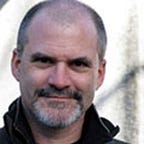Good Mind
It is not enough to have a good mind; it is more important to use it well. — Descartes
Learning and Value
Over the past week, I’ve received a couple of questions about the pursuit of a graduate degree in reliability engineering and about preparing for the CRE. One question was particularly interesting — how will a reliability engineering graduate degree or CRE help my career?
In short, both might help you and your career, or either may not be any help at all.
Learning
The requirements for application for the CRE include at least eight years of experience in reliability engineering or related field. Plus, three years in a decision-making role. The requirements also acknowledge that formal education is a condensed version of experience according to the degree attained.
- Diploma from a technical or trade school — one year will be waived
- Associate degree — two years waived
- Bachelor’s degree — four years waived
- Master’s or doctorate — five years waived-from ASQ CRE requirements.
In my mind, the experience of solving problems is the best teacher, yet both book learning and real world experience provide you an education. Knowing the tools exist is the primary role of book learning. Experience provides the how and why to apply those tools to get results. Homework made learn how to construct and interpret a Weibull plot. A real work project taught me the value of visualizing the data with a Weibull plot so I could easily provide others the rationale for my recommendation.
The Reliability Calendar site has a section that lists university programs for degrees in reliability and maintainability engineering. There also are sections for the ASQ Reliability Division webinars, reading materials and a full calendar of courses, events, conferences, etc. There are many ways to learn.
For those preparing for the CRE exam, you have education and experience, yet may want to review and strengthen your mastery of the breadth of the CRE body of knowledge. There are primers and courses specific to you, and a few are listed on the Support page.
Value
Back to the interesting question about career improvements and the quote by Descartes. Knowledge is good, yet not sufficient for a successful career. You have to use that knowledge to make decisions and create value. The time spent earning a degree or certification is an investment, and it is what you do, based on the investment that matters.
Do you provide value?
If so, you will improve your career. If you solve problems efficiently, determine and explain reliability statistics clearly, and recommend reliability tools that provide meaningful results, then you are well on your way to providing value.
In my recent paper, Investment in Reliability Program versus Return — How to Decide, I talk about selecting the right task to optimize the return on investment that task provides. There is no one set of tasks that create a perfect or suitable reliability program. It is the melding of your knowledge and experience that provides the means to create value by building and executing an effective reliability program.
I’ve seen an electrical engineering Development team manager, a quality manager, atTechnical marketing manager, and a reliability engineer do this successfully. Not all had formal training in reliability engineering, yet all had the ability to develop a plan that efficiently used the available resources and created meaningful information that enabled decisions. The results are in improved product reliability. And, those that achieve meaningful business results advance their career.
Do a good job, and you’ll get recognized.
How has the CRE exam preparation or certification helped you create value?
Originally published at Accendo Reliability.
